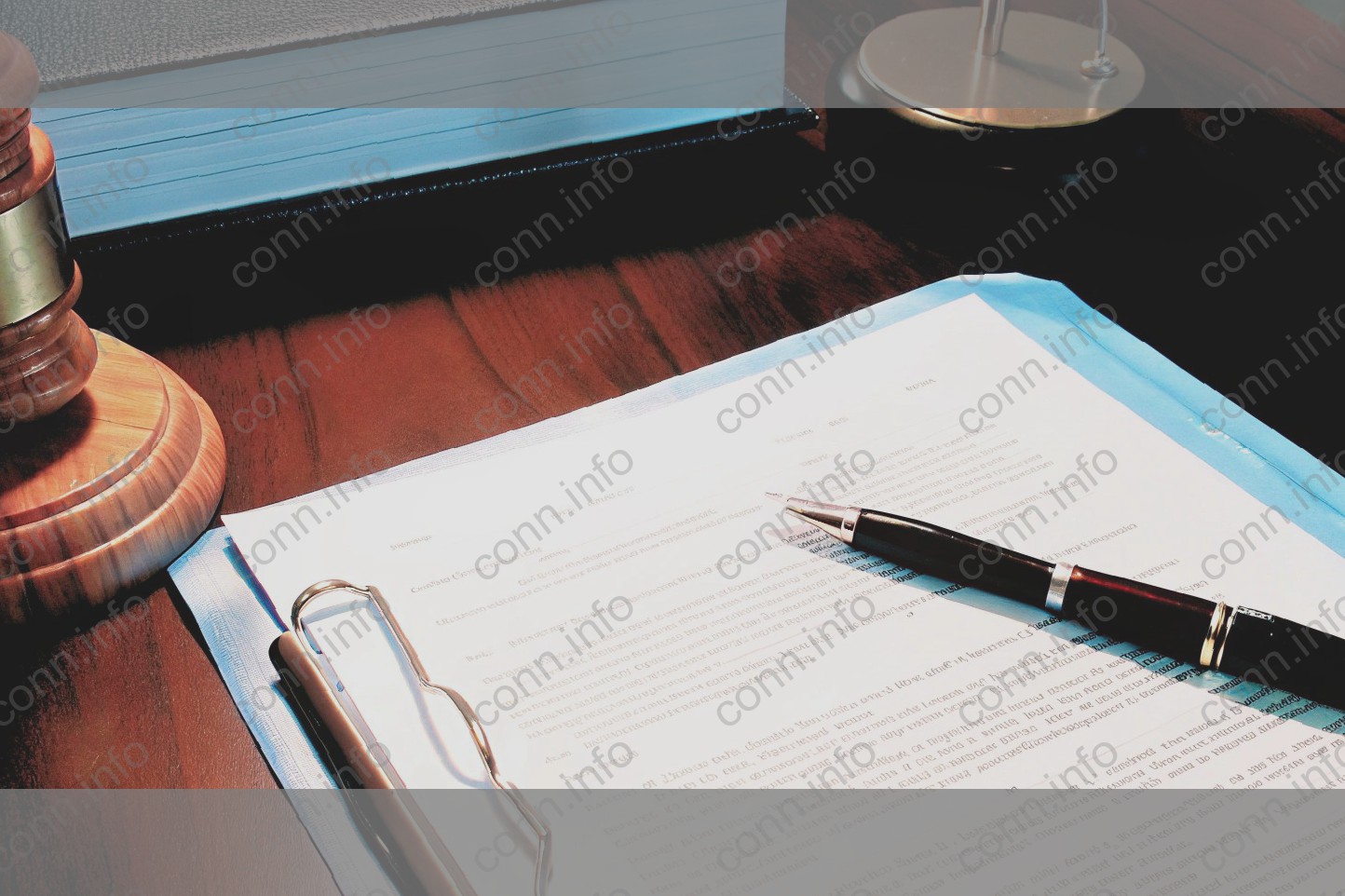What to know about postnuptial agreements
A postnuptial agreement is a legally-binding contract between two people who are already married or are registered as domestic partners or civil union partners. The purpose of a postnuptial agreement is typically to outline any financial agreements and responsibilities the couple have based on their circumstances at the time.
While a prenuptial agreement is established when a couple is preparing to marry and before they enter into a marriage, a postnuptial agreement is established at some point during their marriage. Because of the differences in timing, the issues addressed in each agreement and the reasons for entering into one may be different, but the purpose is essentially the same.
Essentially , a postnuptial agreement is similar to a prenup in that it’s a contract that defines the couple’s finances, but it avoids the assumption that the entire agreement is in place to "protect them from divorce." The couple may or may not have plans to divorce simply because they are discussing the points outlined within the agreement. It might be an agreement they need to define their future finances for children or other interests.
Couples might enter into a postnuptial agreement to update a previous prenuptial agreement or address issues that simply weren’t covered in the original agreement. It can also be a helpful tool to renegotiate terms after some significant life events.
Can you write a postnuptial agreement without a lawyer?
Under certain circumstances, it is entirely legal to draft a postnuptial agreement without the representation of a divorce lawyer. However, there are significant factors to consider, including the complexity of the agreement and whether or not one spouse is attempting to take advantage of another.
Both Spouses Understand Their Rights
In order for a postnuptial agreement to be legally binding, both spouses must have a firm understanding of their rights at the time of creating the agreement. If you and your spouse cannot afford legal representation and agree on all aspects of the agreement, you can sign a valid postnuptial agreement. In some cases, couples may seek guidance from a paralegal who can review the agreement terms and ensure that they are fair and non-binding.
One Spouse Has Legal Representation
If you and your spouse understand your legal rights and agree to all terms, having a divorce lawyer review the agreement is not necessary. However, if it is clear that one spouse has legal representation and the other does not, this situation could potentially lead to an unfair agreement, and the agreement may be deemed invalid. Even if one spouse is not represented, both parties should still seek legal advice about their rights in connection with the agreement before signing.
Laws Vary by State
Laws regarding postnuptial agreements vary by state. For example, some states do not require postnuptial agreements to be notarized or witnessed, while others do. If you wish to draft the agreement yourself, be sure to check your state laws, as failure to follow the proper procedures could invalidate the entire agreement.
Disadvantages to Drafting a Postnuptial Agreement Without a Lawyer
While it’s completely legal to draft a postnuptial agreement by yourself, there are some potentially damaging disadvantages to consider:
How to make your own postnuptial agreement
Although it is always recommended that you hire a lawyer to draw up a postnuptial agreement for you, sometimes you may wish to try and draft your own. If you do a do-it-yourself postnuptial agreement, keep the following rules in mind:
- You should write up a proposed draft of the agreement, outlining both of your intentions, and revisions should be done until both parties are satisfied with what has been written.
- Once the final version is satisfactory to you both, each spouse must sign the agreement before a notary public or other neutral third party. Common third-party witnesses include a trusted family member, a trusted friend, or a co-worker.
- Each party should keep a copy of the agreement in a safe place such as a fire-proof box or safe deposit box in a bank.
- The other spouse does not need to be in your presence when you sign the postnuptial agreement, yet it is suggested that you are both present during the signing process for mutual understanding. If your spouse is not present, he or she must have a lawyer of their own approval get the agreement signed and acknowledgement sealed by a notary public or other neutral third party on their behalf.
- Once the agreement is signed, it should not be changed or amended on your own. If you wish to revise it at any time, the revision should be made into a new agreement and signed outside of the presence of the other spouse with a third-party signing and notarization once again.
Creating a postnuptial agreement without a lawyer may be an option for you if you take all of the right steps and ensure both spouses agree to the terms in the agreement without outside pressure or monetary gain.
Top mistakes to watch out for
One of the most common mistakes people make when drafting a postnuptial agreement is to assume that a do-it-yourself approach will save them a lot of money. If you don’t know where to start, you could end up spending more time (and possibly even more money) trying to figure out how to make a fair and effective postnuptial agreement. If you don’t have a clear understanding of your personal financial situation, as well as your financial situation as a couple, you could end up with an outdated and ineffective agreement that could result in both of you having to spend more money sorting things out in family or divorce court.
The next mistake to avoid is being overly optimistic about your current situation and/or future situation. In short, don’t assume that your financial circumstances will never change. It’s important to prepare a postnuptial agreement that works for you and your spouse now, as well as down the road. When you decide to draft your postnuptial agreement it is crucial that you are both open and honest about all financial assets and liabilities, even if you both have expectations that things will only get better. If matters are left open, it could leave you, your spouse, or both of you vulnerable when there are changes to your collective incomes in the future.
The last mistake that you may not be able to avoid is what happens if one or both of you decides to seek counsel after drafting the postnuptial agreement. Most likely, the two of you will meet with your attorney separately to discuss all of your concerns in full. In these situations, the postnuptial agreement is basically worthless. Instead of coming up with an agreement that you can both agree on, you have basically forced the current version of the postnuptial agreement on each other with little thought about what each other wanted in the first place.
Pros and cons of the do-it-yourself approach
Making postnuptial agreements into a do-it-yourself task is tempting to some couples. Not spending money on an attorney’s fees seems that it could be a thrifty choice, and for a couple without any significant assets and no children, this arrangement might serve them well. However, the long-term risks can darken the initial appeal of the idea.
Disadvantages:
Difficulties often occur when spouses without any background in family law attempt to create a postnuptial agreement on their own. Sometimes a term included in the settlement could be rendered legally unenforceable by a judge. For example, an unlawful contract between spouses is not specifically prohibited from enforcement. For example , the agreement might include clauses requiring several vacation trips per year or mandatory date nights. A judge may perceive these terms as frivolous and will not uphold them in court. A lengthy and expensive legal battle eventually ensues.
Lack of knowledge could worsen the situation with the inclusion of terms that could be detrimental for one spouse. The spouse who needs to pay alimony and/or child support benefits in the document could have an unbalanced financial settlement if the agreement is not drafted correctly. The result could be financially devastating to that spouse.
Advantages:
A self-made postnuptial agreement can still be a good fit for some couples. It is a good solution if a spouse is about to inherit significant assets. The agreement can also be beneficial for couples who have been married three years or less and whose finances and property are very simple. For example, the spouses have reduced debt (such as student loans) and a house purchased together. If the marriage ends due to divorce or death, a basic agreement gives the spouses time to build a more complex marital property estate over the coming years.
The couple needs to negotiate the terms of their postnuptial agreement as they would their prenuptial agreement, so it is important that a mediator who specializes in family law draft a workable document.
When you should consult an attorney
When it may make sense to involve a lawyer in the postnuptial agreement process
A lawyer may not always be necessary to get a postnuptial agreement drafted, but there are certainly situations where getting the full benefit of dealing with a trained and certified family law specialist may come in handy. For example, if your financial affairs are particularly complicated, involving a CPA or financial planner, or you’re just not sure what you may want to ask about and the related terms that may be necessary and appropriate for your situation. A good postnuptial agreement is more than a bunch of boilerplate clauses that have been paused together. It is, instead, something that carefully considers your life and situation and personalizes the agreement that best suits you. A qualified attorney can walk you through that piece of the equation. A more traditional reason to involve an attorney is if you and your spouse find you are having significant difficulties in some aspects of the agreement. But there may be a number of other reasons for reaching out to a family lawyer: Ultimately, however, the decision of whether or not to involve a lawyer in your personal postnuptial agreement process will be entirely yours and your spouse’s.
Conclusion: give it some thought
As you can see, there are many factors that come into play when drafting a postnuptial agreement, whether you choose to do it yourself or with a lawyer. The most important thing is to ensure that you are doing it for the right reasons, and the right reasons are always the same. You should never be creating a postnuptial agreement in the hopes of solving all of your marital problems, or coercing your spouse to give you money otherwise you will walk out the door , or isolating one spouse from the financial responsibilities of the other. None of those reasons are even remotely acceptable.
In the end, whether you write the agreement yourself or bring it to a lawyer, the only goal should be to promote the stability and security of your family and the children you raise together. And only you can know whether the mutual protection of your respective interests in doing so is a wise decision.



